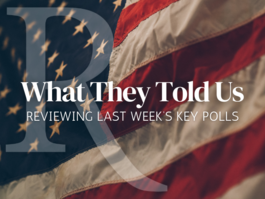Why the U.S. Is Not Greece
A Commentary By Froma Harrop
America is not going the way of Greece, and North Dakota has shown us why. Residents were given the opportunity Tuesday to vote their property taxes out of existence, and they chose not to take it.
Why? Property taxes fund local government. Without it, communities would lose power to set their spending priorities. Lawmakers in Bismarck would have had to come up with over $800 million to replace the property tax revenue lost in 2012. The state is flush right now with gas and oil money, but energy-based economies can go bust as well as boom. Anyway, serious tax reform should be done in a comprehensive fashion, with personal income taxes, corporate incomes taxes and sales taxes also taken into account.
North Dakota's voters snubbed a ploy by anti-tax forces to grab a tax cut with little thought for the immediate consequences or the future. Let's be clear: Accepting taxation as a reality of modern civilization in no way implies that we like paying taxes or think they're fair or approve of everything they support.
If only self-described conservatives in Washington were so grown-up. Leading Republican voices blame only spending for our debt. They warn that if America follows the Democrats' vision, it will end up broke like Greece.
But spending does not cause debt if enough revenues are raised to cover it. During the George W. Bush era, Republicans engaged in the double insanity of manic spending and reckless tax cuts. By demonizing the surplus left by Bill Clinton as overtaxation, they fed an anti-tax culture that has also made us more like Greece.
Greece's economic crisis stems both from heedless spending and a proud tradition of tax evasion. For example, when a tax collector on the island of Naxos recently went looking for cheats, a radio station reportedly broadcast his car's plate number.
Italy is also plagued by a culture of tax dodging. "Only fools pay," goes an Italian saying. The well-to-do escape taxation through loopholes, deductions, cash payments and various havens. Italians driving Ferraris to their villas claim near poverty. Newspapers have labeled this behavior "evasione totale." Much of the money that government does collect comes from the workers, whose taxes are subtracted from their paychecks -- sort of like here.
Many Italians now want to stigmatize tax cheating. An Italian Facebook page called Friends of the Receipts is reporting restaurants and other small businesses that refuse to give invoices or receipts. Italian Prime Minister Mario Monti, an economist, has vowed to go after tax evaders.
Republicans don't publicly support tax evasion, but they do support legal avoidance through the complex tax code. And their rhetoric often stands in the way of sensible dialogue. To call nearly every tax a "burden" and any tax cut, however ill-advised, "relief" -- or say that raising taxes on high-income people amounts to "punishing success" -- transforms taxpaying from an unpleasant duty to an injustice or a sucker's deal. When a debate moderator famously asked GOP presidential candidates whether they'd turn down $10 of spending cuts for $1 dollar of new tax revenues, all eight raised their hands.
A few Republicans have improved the conversation. South Carolina Sen. Lindsey Graham broke with party orthodoxy by expressing interest in at least closing some loopholes. And former Florida Gov. Jeb Bush has defended the tax hike endorsed by his father, President George H.W. Bush -- a brave effort that may have cost the elder Bush a second term.
One can only hope that softer talk and the vote in North Dakota point to a more mature debate. It would be one that goes: If you want less government, fine, but except during recessions, you must pay for the government you have.
COPYRIGHT 2012 THE PROVIDENCE JOURNAL CO.
DISTRIBUTED BY CREATORS.COM
See Other Political Commentary.
See Other Commentaries by Froma Harrop.
Views expressed in this column are those of the author, not those of Rasmussen Reports. Comments about this content should be directed to the author or syndicate.
Rasmussen Reports is a media company specializing in the collection, publication and distribution of public opinion information.
We conduct public opinion polls on a variety of topics to inform our audience on events in the news and other topics of interest. To ensure editorial control and independence, we pay for the polls ourselves and generate revenue through the sale of subscriptions, sponsorships, and advertising. Nightly polling on politics, business and lifestyle topics provides the content to update the Rasmussen Reports web site many times each day. If it's in the news, it's in our polls. Additionally, the data drives a daily update newsletter and various media outlets across the country.
Some information, including the Rasmussen Reports daily Presidential Tracking Poll and commentaries are available for free to the general public. Subscriptions are available for $4.95 a month or 34.95 a year that provide subscribers with exclusive access to more than 20 stories per week on upcoming elections, consumer confidence, and issues that affect us all. For those who are really into the numbers, Platinum Members can review demographic crosstabs and a full history of our data.
To learn more about our methodology, click here.


